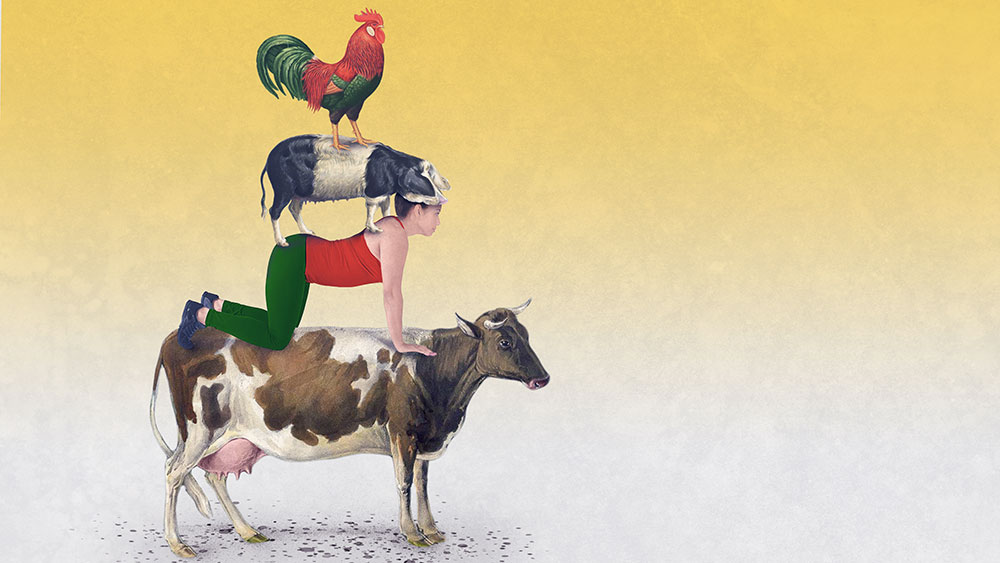Healthy People, Healthy Animals

The Covid-19 pandemic has demonstrated how new pathogens can paralyze entire societies. Assuming that it isn’t a human-made virus that escaped from a lab, the novel coronavirus evolved naturally from the same processes that have accompanied humankind for millennia. Ever since humans and animals started living in close proximity to each other, there have been germs that have passed from animals to humans and, more rarely, vice versa.
Thanks to modern antibiotics, many of these germs are no longer as scary as they used to be. And yet, rampant bacterial resistance to antibiotics is causing us serious problems. In Switzerland alone, every year several hundred patients succumb to infections caused by bacteria that are resistant to antibiotic treatment. Such resistances emerge from a complex interplay between humans, animals and the environment. To fight them effectively, veterinarians and physicians need to work together more closely, says Roger Stephan, dean of the Vetsuisse Faculty. This idea is known as One Health. The health of humans and the health of animals are interconnected – and must thus be investigated using an interdisciplinary approach.
The University of Zurich has included One Health in its strategic priorities. Many UZH researchers are already working successfully in this field.Veterinarian Barbara Willi, for example, has discovered that antibiotic-resistant bacteria in animal clinics not only spread easily among cats and dogs, but may also jump over to their owners. That’s why she recommends washing your hands after every contact with pets.